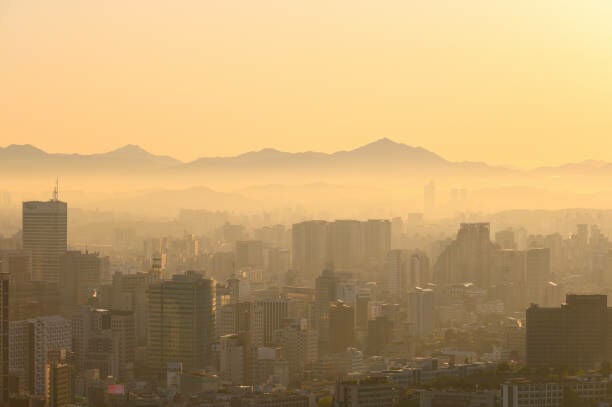Bangkok grapples with severe air pollution despite New Year holiday lull

Despite the reduced traffic during the New Year holiday, Bangkok continues to battle severe air pollution issues.
A total of 16 districts were marked as red zones due to significant health risks today, December 29.
The Geo-Informatics and Space Technology Development Agency (Gistda) website revealed that at 8am, PM2.5 dust levels were recorded above 75 microgrammes per cubic metre (μg/m3) in 16 of the capital’s 50 districts. The most affected district, Bangkok Yai, reported a reading of 87.8 μg/m3. This was closely followed by Don Muang at 87.5 μg/m3, Laksi at 86.9 μg/m3, and Thon Buri at 82.7 μg/m3.
Other severely impacted districts included Klong San (80.2 μg/m3), Samphanthawong (79.3 μg/m3), Bangkok Noi (78.9 μg/m3), Phra Nakhon (78.3 μg/m3), Phasicharoen (77.8 μg/m3), Bang Rak (77.1 μg/m3), Nong Khaem (76.4 μg/m3), Lat Phrao (76.3 μg/m3), Sai Mai (75.9 μg/m3), Din Daeng (75.8 μg/m3), Taling Chan (75.7 μg/m3), and Bang Khen (75.6 μg/m3).
The remaining 34 districts fell into the orange zone, indicating that the pollution levels were beginning to have significant health impact.
The neighbouring provinces of Samut Sakhon and Nonthaburi were also marked as red zones. At 8am, the PM2.5 dust level in Samut Sakhon was 82.4 μg/m3, while Nonthaburi recorded a level of 76.5 μg/m3, reported Bangkok Post.
Winter months tend to see worsening pollution due to crop burning. To combat this, the Cabinet approved incentives worth 8 billion baht earlier this month. These incentives are directed at sugarcane farmers who agree to cut fresh sugarcane without resorting to burning the residue.
In related news, Bangkok grapples with hazardous air pollution, ranking as the third worst city globally for PM2.5 dust levels. The capital’s skyline is shrouded in smog as agricultural burning, forest fires, and urban traffic contribute to the crisis. Air quality index reaches an alarming 198, categorized as unhealthy, prompting health concerns. Chiang Mai City, too, faces severe pollution, securing the eighth spot globally. Residents are urged to stay indoors, use N95 masks, and limit outdoor activities. Bangkok Governor Chadchart Sittipunt advocates public transport and remote work to mitigate the impact of worsening air quality.
Latest Thailand News
Follow The Thaiger on Google News:


























